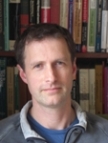Evening lectures
It is a tradition at ESSLLI to have a number of evening lectures of eminent scholars and researchers of the field who not only reach out to the entire ESSLLI community, but even beyond to the general audience. These evening lectures will be open to the general public and will be widely advertised at the University of Bordeaux and in local newspapers. The evening lectures are supposed to provide a research overview of some parts of our community understandable for everyone.
We are extremely pleased to have attracted four excellent evening lecturers for ESSLLI 2009:
| Title: | On context-free graph grammars | |||
| Date and time: | Tuesday, July 21st, 19h30--21h30 | |||
| Location: | Amphithéâtre Broca | |||
 | Bruno Courcelle Professor in Computer Science, Laboratoire Bordelais de Recherche en Informatique, Université de Bordeaux I. | |||
Context-free grammars are interesting for many purposes : linguistics, compilation, compact description of large finite sets or of infinite sets, counting and random generation (with unambigous grammars). What means to be context-free for graph grammars ? A definition and examples will be presented. Attribute grammars, useful in compilation, form a paradigmatic example of context-free graph grammars. The classical problem of checking noncircularity is a good example of the verification of a property on all graphs produced by a grammar. The notion of equational set of an algebra is the adequate framework for defining context-free grammars (as systems of equations having least solutions) and proving properties of the generated sets. | ||||
| Title: | English as a programming language? | |||
| Date and time: | Thursday, July 23rd, 19h30--21h30 | |||
| Location: | Amphithéâtre Broca | |||
 | Yiannis N. Moschovakis Professor of Mathematics, Department of Mathematics, University of California (Los Angeles). | |||
The publication of Richard Montague's seminal "English as a formal language" in 1970 influenced immensely the study of natural language semantics and has had a profound effect on the philosophy of language and (perhaps) also on linguistics. Since then, however, programming languages have blossomed and they offer a different paradigm for "language". My main aim in this lecture is to discuss some aspects of natural language that (I claim) we can understand better by exploring the analogy of natural language with programming rather than formal languages---especially meaning (Frege's sense), which should be the primary semantic value of a sentence. This will be an elementary lecture, aimed at those with some interest in logic and philosophy of language but not necessarily technically proficient in either. | ||||
| Title: | Why is language acquisition possible? | |||
| Date and time: | Tuesday, July 28th, 19h30--21h30 | |||
| Location: | Amphithéâtre Broca | |||
 | Nick Chater Professor of Cognitive and Decision Sciences, Department of Psychology, University College London. | |||
Children appear to learn language primarily from positive data---i.e., from observing what is said, and not what utterances are not acceptable. This raises a substantial problem of induction--how can such a rich and productive system be learned from apparently partial data. Drawing on joint work with Paul Vitanyi and Anne Hsu, I discuss how this inductive reasoning problem can be tackled by assuming that the learning follows a simplicity principle---choosing the 'model' of the language that provides the simplest encoding of the linguistic, or other, input. This approach allows an approximate quantification of how much linguistic input is required to learn particular linguistic regularities. I also discuss work, with Morten Christiansen and Florencia Reali, which considers the relationship between language acquisition and the evolution of language--arguing that language has been shaped, by processes of cultural evolution, to be especially easy to learn and process. | ||||
| Title: | Formal grammars and descriptive grammars: the Grande Grammaire du français project | |||
| Date and time: | Thursday, July 30th, 19h30--21h30 | |||
| Location: | Amphithéâtre Broca | |||
 | Anne Abeillé Professor of Linguistics, Laboratoire de Linguistique Formelle, Université Paris 7. | |||
Formal grammars have been successful for implementing wide-coverage grammars for a variety of languages (Lingo, Pargram etc). They have also proven fruitful for shedling light on some previously understudied linguistic phenomena like coordination of unlikes or flexible idiomatic expressions. However, they are usually unsufficient for parsing spoken corpora or degraded texts (such as web pages). On the other hand, descriptive grammars are ususally corpus-based (Grevisse and Goosse 2007), provide a good interface with lexical aspects, and some of them take spoken varieties into account (Biber et al 1999). However, they are not fully explicit, usually not modular, and quite difficult to formalize. I present the Grande Grammaire du français project, which aims at proving a systematic and fully explicit description of the syntax of French, together with its interfaces with the lexicon, morphology, semantics, discourse and prosody. The result should be not formalized but formalizable. I compare it with a similar enterprise for English (The CGEL) and with formal grammars of French such as (Abeillé 2002). References
| ||||
